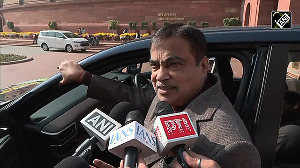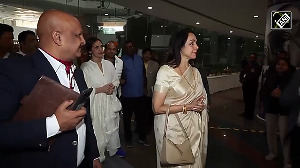Standard Chartered Mutual Fund has come out with Standard Chartered Tax Saver (ELSS) Fund, a close-ended Equity Linked Saving Scheme (ELSS). It offers deduction up to Rs 1 lakh under Sec. 80C and the minimum lock-in period would be three years as in any other ELSS. However, it differs from other ELSS in being a 10-year close-ended scheme.
Justifying the close-ended nature of the scheme, Rajiv Anand, Head- Investments, Standard Chartered MF says, "If we look at the tax saving habits of most Indians, money set-aside in various instruments for tax saving is of a fairly long-term nature (eg PPF, LIC premiums etc). The immediate need for this money to provide much needed cash flow is therefore minimal. A close-ended scheme is thus well suited for this investor behavior. Keeping it totally open ended may at times push investors to take irrational decisions not in their best interests."
Advisor Hemant Rustagi believes, "ELSS, in general, is one of the best options among the instruments eligible for tax benefits under section 80C both in terms of potential to grow as well as tax efficiency of the returns. ELSS can be a good way for a first time investor to invest in equity funds as it provides him an opportunity to participate in the equity market and save taxes while doing so."
However, on the flipside Rustagi says, "Though ELSS have the potential to give better return compared to other options under Section 80C, there is definitely some risk attached to it." "However, this gets minimized with the longer duration of the fund and can also be tackled by investing through SIP (Systematic Investment Plan)," he added
Being specific about StanChart Tax Saver, experts feel that the scheme has nothing new to offer as compared to existing schemes of a similar type and consequently, investing in a similar scheme, which has done well in the past, makes more sense.
Investment expert Sandeep Shanbhag adds, "Standard Chartered AMC is a relatively new entrant into the equity mutual fund space. The two equity schemes that the mutual fund has that have existed for more than one year have not beaten the average returns that diversified equity schemes have generated."
Lastly, there is the issue of upfront initial expenses of 6%. Shanbhag elaborates, "Investors, who exit the scheme before the ten-year duration of the scheme, will have to pay up the unamortized part of the initial issue expense. On the other hand, investors investing in open-ended schemes bear the load of 2.25%. Therefore, the NAV of StanChart Tax Saver Fund at the time of redemption will decide if the investor was better off paying an entry load of 2.25% in an open ended scheme or not."
However, Anand assures, "Considering the 10 year lock-in and 6% upfront expenses, an investor who doesn't pull out of the fund for 6-7 years, would be better off investing in Standard Chartered Tax Saver (ELSS) Fund compared to an open ended fund. Considering the long-term nature of tax saving investments, this favours a close-ended structure."
Conclusion:
Experts believe, "If an investor decides to invest in this fund, he will have to go by the track record of the existing funds of the fund house to assess its capabilities. On the other hand, some of the existing ELSS hace an excellent track record. One can examine the performance, portfolio quality, level of diversification and then select one to maximize the benefits."
For more on mutual fund investments, log on to www.easymf.com.





